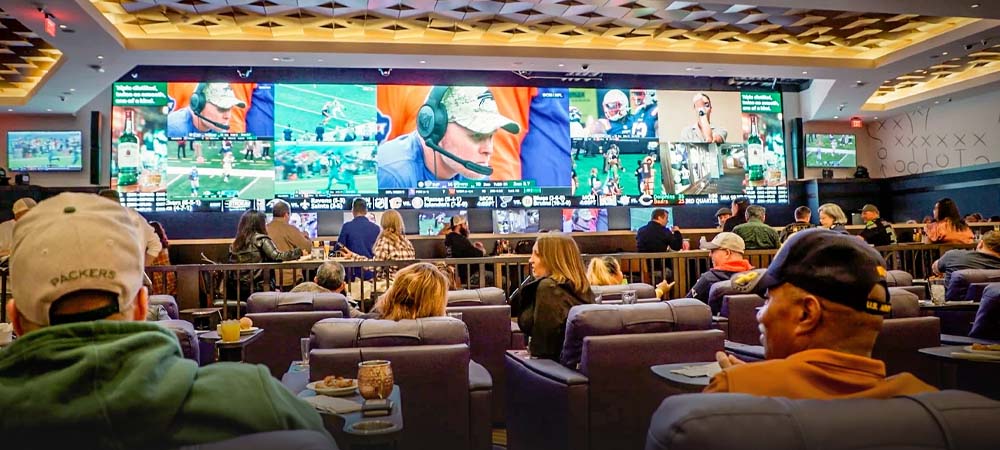- A federal court has shut down Maverick Gaming’s challenge that would expand sports betting in Washington state while removing alleged “tribal monopolies”.
- The decision was hailed as a huge win for tribal sovereignty but also was criticized as allowing for discriminatory monopolies.
- Because involved tribes cannot be asked to participate in litigation that would threaten their gambling revenue, the case is expected to be appealed to the U.S. Supreme Court.
WASHINGTON, D.C. – After a lawsuit was filed by Maverick Gaming against Washington state in January of last year, a federal court threw out the case due to complications around tribal sovereignty. The decision has garnered praise from various Native American tribes in the area as well as receiving heavy criticism mainly from Maverick Gaming CEO Eric Persson.
As it currently stands, the halting of this lawsuit would result in only tribes being allowed as acceptable sportsbooks while the rest of gambling has been confined mainly to card rooms. Legal betting sites see various pros and cons to the federal court ruling, particularly as it relates to the balance of monopolies and tribal sovereignty.
Pros of the Decision
Much in the same tune as the various tribes that supported the decision such as the Shoalwater Bay tribe, the main benefit is the continued guarantee of sovereign immunity and sovereign protection by the state government.
Sovereign immunity is also the primary reason why the lawsuit has been hard to leverage for Maverick Gaming, since tribes are generally granted immunity from U.S.-based courts that seek to litigate internal matters.
With the guarantee that their sovereignty is being respected, Washington state can cultivate and maintain their relationship with the 15 total tribes that offer sports betting and making sure that their profits and livelihood are not threatened by outside organizations.
The main danger of a company like Maverick is that their profits and hiring practices may endanger the viability of the current system run by the various Native American tribes and put many Washingtonians and/or Natives out of the workforce as a result.
Furthermore, many of the gambling proceeds are the main source of money through which those living on reservations among tribes depend on for access to healthcare, transportation, housing, etc. Thus, the federal court’s decision by extension has guaranteed the livelihoods of these people and ensures that the revenue goes to helping those in need.
Cons of the Decision
The concern that is most at the forefront of the decision is the danger it poses to competition. Mirroring much of the rhetoric used by Maverick Gaming CEO Eric Persson is the idea that monopolies can form if state governments restrict sports betting privileges to only tribal entities.
If Maverick got their way and the lawsuit was carried through, Washingtonians would likely see a huge boost in the accessibility of sports betting, particularly in the geographical sense as Maverick could set up areas closer to cities and towns that otherwise are too far away from tribal reservations and associated legal betting areas.
Lastly, Maverick has attempted to stay in line with already existing regulations that apply to tribal betting areas such as only allowing online betting within the premises as well as already being licensed to operate 22 of their own card rooms. Those critical of the court’s decision are sure to make calls of hypocrisy for allowing card rooms but barring the ability of companies like Maverick to expand further into sports gambling with the exact same regulations as their tribal counterparts.
Overall, legal sportsbooks are likely saddened by the decision to keep Washington’s sports betting market exclusively ran by tribal governments. Though, there are many positives to doing so, especially as it relates to general welfare of tribal citizens that rely on the revenue to maintain their way of life and to provide for the members of their community.
Advertising Disclosure
In order to provide you with the best independent sports betting news and content LegalSportsBetting.com may receive a commission from partners when you make a purchase through a link on our site.
News tags: Eric Persson | Maverick Gaming | Shoalwater Bay tribe | Washington

Jeremias is a current Florida State University student majoring in Editing, Writing and Media as well as Media/Communication studies. Primarily focused on the NFL, NBA, and NHL, Jeremias has a passion for sports statistics research that helps bettors find the blind spots in sportsbooks.



 College Football Betting
College Football Betting Best Online Sports Betting
Best Online Sports Betting Best Legal NFL Betting
Best Legal NFL Betting States With Legal Sports Betting
States With Legal Sports Betting Sports Betting Events
Sports Betting Events




